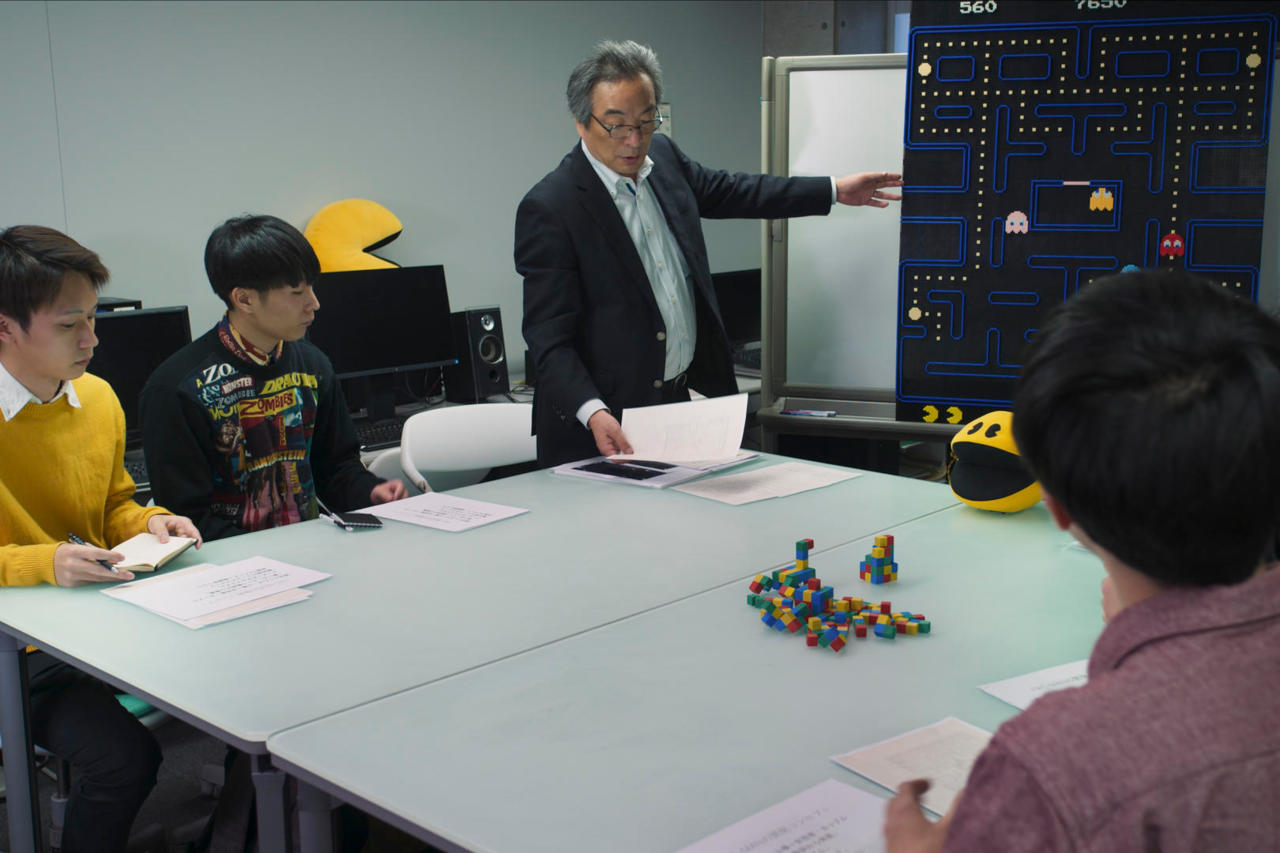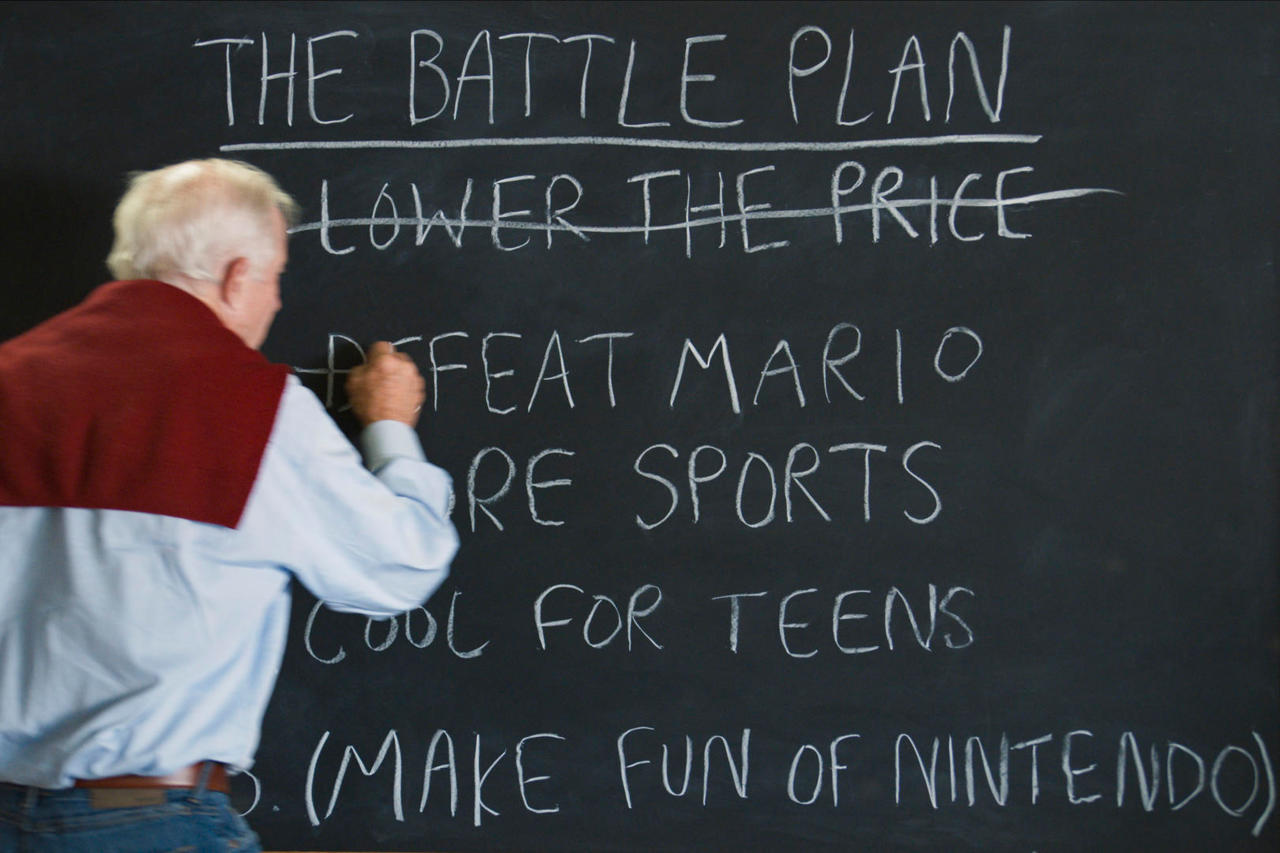It's surprising that the video game industry doesn't have very many high quality documentaries that chronicle its fascinating history. There have been a few commercial gems, including The King of Kong and Indie Game: The Movie. Recent developer-created making-ofs for games like God of War and Broken Age offer compelling looks at the process of creating a single game. And YouTube channels such as Noclip have regular long-form stories about the development of games both large and small. But there hasn't been a really great documentary that tells the story of gaming's formative years--until now. High Score, a new Netflix limited series streaming August 19, is easily the most impressive video game documentary to date.
High Score covers a lot of ground in its roughly 4.5 hour runtime spread across six distinct episodes. From arcade culture and Atari to Nintendo, Sega, and specific genres like role-playing and fighting games, High Score methodically moves through the late '70s through early '90s, telling the vibrant stories behind the most popular games of the time and the people who created them. The result is a crash course on the golden age of gaming filled with insightful interviews, brilliant writing, and most importantly, an inspiring and inclusive message.
Video game documentaries, even some of the decent ones--Chasing Ghosts, Ecstasy of Order: The Tetris Masters--have routinely been plagued by low production values. High Score is as well-produced as any Netflix doc, with interviews and scenes set globally, a treasure trove of classic footage, and most charmingly, animated scenes that are used alongside anecdotes told by those involved with gaming's rich history.

High Score also has a stellar narrator in Charles Martinet, the voice of Super Mario. Martinet serves as the tour guide for this trip through gaming's pivotal years, while the huge cast of interview subjects--who speak directly to the camera--fill in the details, providing behind-the-scenes stories of what it was really like to be part of the gaming boom. It's directed by William Acks, France Costrel, and Sam LaCroix, all of whom worked on Showtime's doc series about technology and the dark web, Dark Net.
Episode 1, "Boom & Bust," revisits Space Invaders and Pac-Man and features in-depth interviews with both creators as well as the challenging transition from arcades to home consoles. Some of the most interesting interviews in "Boom & Bust" tell lesser known stories, like how Ms. Pac-Man came to be and the actual developer behind the tech that led to cartridge-based games. And it addresses the "Bust" part of the episode title as well by dissecting Atari's downfall, complete with a humorous interview with the creator of E.T. the Extra-Terrestrial--notoriously considered the worst game ever made.
Setting the tone for High Score as a whole, "Boom & Bust" offers a humanizing look at those who both fell in love with making games and those who excelled at them, stressing along the way that games are meant to be for anyone and everyone.

Nintendo rose from the ashes left by Atari, so it's fitting that High Score heads in that direction next. For longtime Nintendo fans, much of the story might be familiar, like how Donkey Kong and Super Mario came to be. However, Episode 2, "Comeback Kid," also focuses on an endearing aspect of the studio's history: Nintendo Game Play Counselors. In fact, the star of the episode is Shaun Bloom, a former Game Play Counselor, who has a ton of on-the-job stories that are simply delightful. With old Nintendo training videos, news footage, gameplay videos, and cartoon scenes galore, "Comeback Kid" has a startling amount of variety across its 45-minute runtime.
For RPG fans, the third episode looks back at the origins of the hugely influential genre. Featuring interviews with the duo behind the first PC adventure game with graphics and the man responsible for bringing choice-based consequences to games, "Role Players" is utterly absorbing. Most critically, it delves into the appeal of the genre for many: the ability to become anyone they want on screen. To this effect, it features one of the most inspiring interviews in the series with the creator of the 1992 LGBTQ RPG, GayBlade.
Anyone who has read Blake Harris's Console Wars will recognize many of the beats in the episode dedicated to Sega, with key contributors such as Sega of America CEO Tom Kalinske and Sonic the Hedgehog gameplay designer Hirokazu Yasuhara telling the story of Sega's path to relevance. It really hones in on how Sega cleverly managed to wrangle away some of Nintendo's astronomically high market share, providing a keen perspective on how marketing can be the most important aspect of any product. Part of Sega's plan involved sports games and the complex journey to bring 11v11 football to life with John Madden Football, including a story from a very persistent developer who changed the game for the better with Madden NFL '95.

Street Fighter and Mortal Kombat are the foundation for the episode dedicated to fighting games. Revealing interviews with Street Fighter II designers Akira Nishitani and Akira Yasuda and Mortal Kombat co-designer John Tobias explore the beginnings of gaming's path toward serious competition. The episode also details the first major (comical) outcry about video game violence, which contains some lesser known facts about the 1993 congressional hearings and their lasting effects on the industry at large.
Every episode of High Score is superb, but Episode 6, "Level Up," has a few of the best anecdotes and insider stories about the pivotal jump from 2D to 3D. Of course, id Software is heavily featured, and John Romero has plenty of amazing tales to tell. Jumping back and forth from America to Japan, Level Up also discusses Nintendo's decidedly different but equally compelling approach to the revolution that was 3D gaming.
All told, High Score is the most comprehensive video game documentary to date. It has a large scope but manages to tell intimate, relatable stories about people who fell in love with games and decided to dedicate themselves to what has become one of the most ubiquitous entertainment mediums in the world. It's also fiercely determined to shine a light on the stories surrounding games that have been lost over the years, lifting up those who have sadly lived on the margins of both the industry and society. For that, High Score delivers an important and hopeful message.